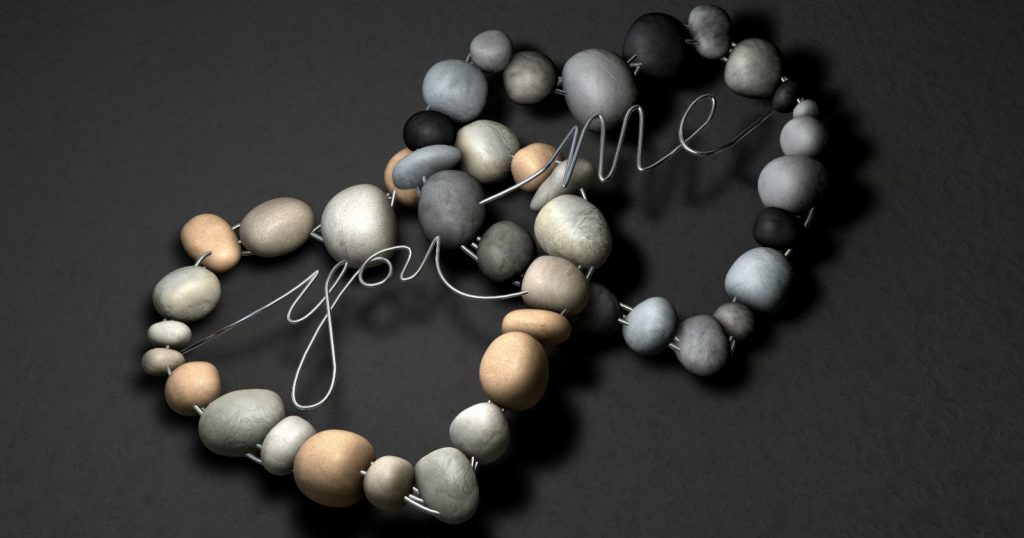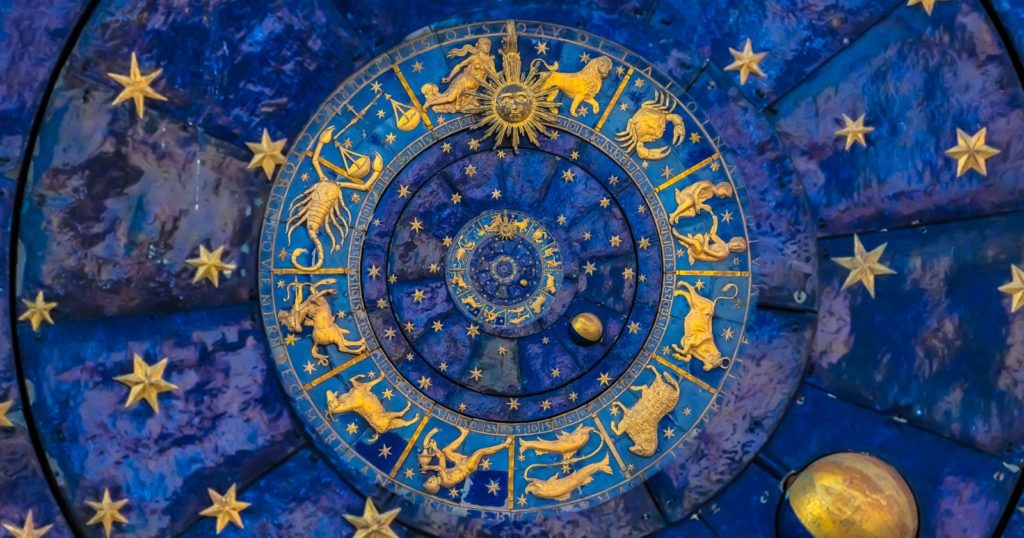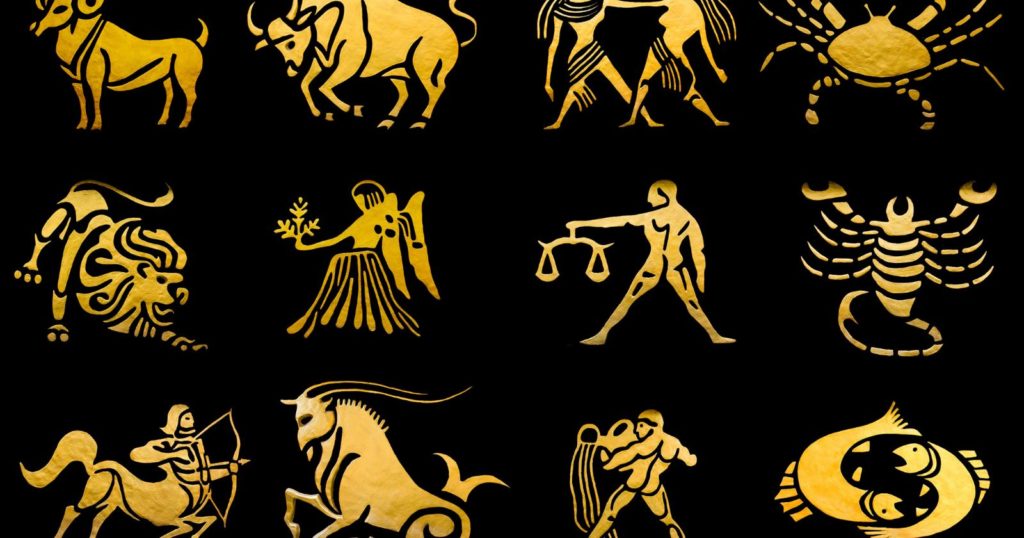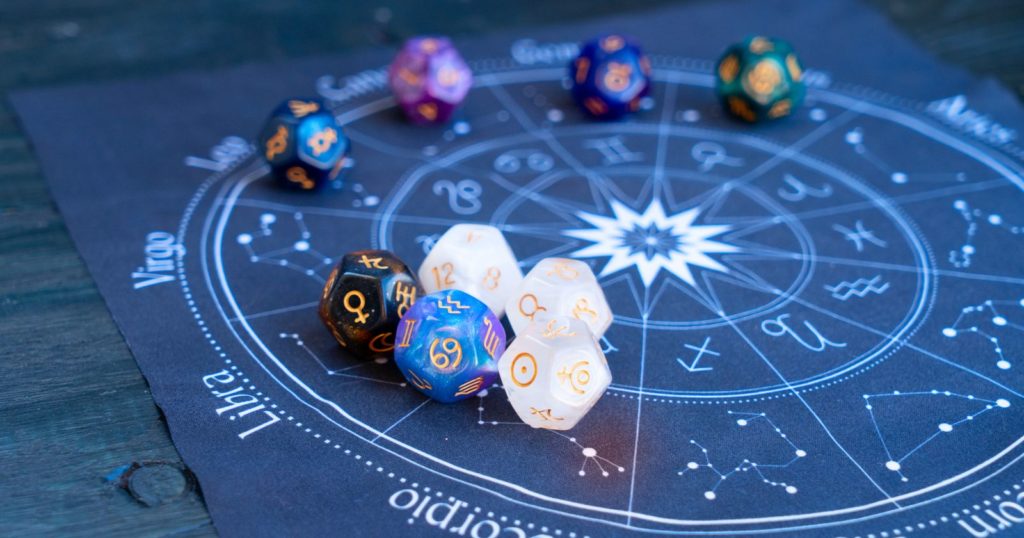Astrology, the ancient practice of interpreting celestial movements, has intrigued humanity for thousands of years. Among its many applications, one of the most fascinating is its supposed ability to provide insight into our deepest relationships, including the connection we have with our soulmate. “Astrology: Who is My Soulmate?” is a question frequently posed by those seeking understanding and guidance in their quest for love.
A soulmate, in romantic terms, is often defined as that one person who truly ‘gets’ you, who complements you in ways you might not even fully understand, and with whom you feel an intense, unexplainable connection. This person can feel like your ‘other half,’ your life partner, or your deepest confidante. The concept of a soulmate transcends physical attraction; it delves into the realm of spiritual and emotional compatibility. And, as astrology suggests, the answers may be written in the stars.
Astrology offers a compelling perspective on soulmate compatibility, attributing profound influence to the positions of the planets and stars at the exact moment of your birth. Your Zodiac sign, derived from this celestial snapshot, is believed to influence your personality traits, emotional tendencies, and even your compatibility with other signs. It is within this celestial blueprint that astrology seeks to answer the age-old question of soulmate compatibility.
In this insightful article, we will dive into five zodiac clues and their meanings that could shed light on the identity of your soulmate. Unravel the cosmic mysteries and arm yourself with astrological wisdom to guide your journey towards love. Whether you’re a passionate Aries, a meticulous Virgo, or a dreamy Pisces, there’s a world of celestial insight waiting for you.
Clue #1: Sun Signs and Elemental Compatibility
The first clue in our astrological quest for your soulmate lies in your Sun sign and its elemental affiliation. Your Sun sign represents your core personality, your ego, and your self-identity. It is determined by the position of the Sun at the time of your birth. Astrology classifies the twelve zodiac signs into four elemental groups: Fire (Aries, Leo, Sagittarius), Earth (Taurus, Virgo, Capricorn), Air (Gemini, Libra, Aquarius), and Water (Cancer, Scorpio, Pisces).
Each element symbolizes a fundamental temperament, and signs of the same element are generally harmonious with each other. Fire signs are passionate and dynamic, often matching well with other Fire signs who can keep up with their energetic pace. Earth signs are practical, reliable, and value stability; they generally mesh well with other Earth signs who share their grounded nature. Air signs are intellectual and communicative, resonating with fellow Air signs who match their thirst for conversation and ideas. Finally, Water signs are sensitive, intuitive, and emotional, finding solace and understanding in the company of other Water signs.
However, compatibility is not confined to similar elements. Fire signs can ignite Air’s intellectual pursuits, while Air, in turn, can fan Fire’s adventurous spirit. Likewise, Earth signs can provide the stable ground Water needs to allow their emotions to flow, and Water can nourish Earth’s pragmatic nature with depth and emotional insight.
So, if you’re an Aries, your natural spontaneity and zest for life might resonate with the charismatic Leo or the adventurous Sagittarius. Or, perhaps, the intellectual curiosity of an Aquarius could fan your fiery spirit. Remember, compatibility is multi-faceted, and while elemental compatibility provides an insightful starting point, other astrological factors contribute to the nuanced complexity of a soulmate relationship.
Taking into account your Sun sign and its elemental affiliation can provide a broad overview of your inherent compatibility with other signs. It serves as a foundational piece of the celestial puzzle of love. Armed with this understanding, you are one step closer to identifying who, in the vast cosmic universe, could be your soulmate.
Clue #2: The Role of Moon Signs in Emotional Compatibility
As we journey deeper into the world of astrology, our next clue is hidden within the Moon sign. Unlike the Sun sign, which reflects our conscious mind and outward personality, the Moon sign delves into our subconscious, highlighting our emotional reactions, innate habits, and instinctual needs. It represents the more intimate and hidden aspects of our personality and plays a crucial role in determining emotional compatibility with others.
Understanding your Moon sign and that of your potential soulmate can provide insight into how you both express and handle emotions. A harmonious Moon sign compatibility suggests a natural emotional understanding, promoting empathy, emotional support, and deep bonding—traits quintessential for a soulmate relationship.
For instance, if your Moon sign is in Cancer, you may express emotions intensely and value emotional security. A partner whose Moon sign is in nurturing Taurus or empathetic Pisces can provide the emotional stability and understanding that you crave. If your Moon sign is in logical Aquarius, you might find an intellectual and communicative connection with a Gemini or Libra Moon sign.
However, bear in mind that different Moon signs can also complement each other. An emotional Pisces Moon and a rational Virgo Moon can balance each other out, teaching and learning from their contrasting emotional responses. Thus, exploring the Moon sign can reveal fascinating insights into emotional compatibility, but also the potential for growth and learning in a relationship.
The realm of the Moon sign uncovers the emotional core of a relationship, revealing how we love, what we need to feel emotionally satisfied, and how we respond to the ebbs and flows of the emotional tides in our lives. By decoding this celestial clue, you’ll gain a deeper understanding of how your soulmate might connect with you on an emotional level, further narrowing down your cosmic match.
Clue #3: Venus and Mars: The Cosmic Dance of Love and Passion
As we traverse the celestial path of love, our next clues lie with Venus and Mars, often referred to as the “relationship planets”. These two planetary bodies paint a vibrant picture of how we approach love and desire, becoming integral in determining soulmate compatibility.
Venus, named after the goddess of love and beauty, rules our romantic desires, our approach to love, and what we seek in a partner. It helps us understand our need for harmony, aesthetics, and pleasure in relationships. On the other hand, Mars, named after the god of war, governs our primal desires, our assertive energy, and how we pursue what we want. While Venus showcases our love style, Mars reveals our passion and drive.
A harmonious Venus-Mars alignment can result in a powerful, magnetic attraction. If your Venus is in Libra, you may seek balance, harmony, and intellectual stimulation in a relationship. You might find compatibility with someone whose Mars is in Gemini, fostering a lively exchange of ideas and shared curiosity.
Alternatively, if your Venus is in sensual Taurus, you might appreciate tangible expressions of love and a steady, reliable partner. A Mars in Capricorn, with its disciplined and dependable energy, could match your desire for stability and consistency.
However, contrasting Venus and Mars signs can create an exciting dynamic that sparks growth and discovery. A Venus in adventurous Sagittarius might be intrigued by the intensity of a Mars in Scorpio, adding a layer of mystery and depth to their love experience.
Venus and Mars, in their cosmic dance, reveal our romantic and sexual nature. This celestial duo sheds light on how we give and receive love, and how we channel our passions—vital insights into the dynamic that could exist with your soulmate. By decoding these clues, we delve deeper into the intricate nuances of astrological compatibility.
Clue #4: The Importance of Ascendant or Rising Sign Compatibility
The next celestial clue lies in understanding the Ascendant or Rising sign and its significance in your astrological compatibility. The Ascendant sign represents the ‘mask’ you wear, your first impressions, and your natural reaction to new situations. It is determined by the zodiac constellation that was rising on the eastern horizon at your exact time of birth.
Your Ascendant sign compatibility can greatly influence how you initially interact with potential soulmates. This sign dictates how you present yourself to the world, and a compatible Ascendant sign in a partner suggests a natural ease in your social interaction and mutual understanding of each other’s instinctive responses.
For example, if your Ascendant sign is in vibrant Leo, you might be naturally expressive and enjoy being in the spotlight. A soulmate with an Ascendant in sociable Libra or adventurous Sagittarius may appreciate your flair for drama and match your enthusiasm. Conversely, if your Ascendant is in reserved Capricorn, you might appreciate a soulmate whose Ascendant in stable Taurus or meticulous Virgo mirrors your own pragmatic approach to life.
However, contrasting Ascendant signs can also contribute to the intrigue and attraction in a relationship. An introverted Pisces Ascendant might be drawn to the confidence of an Aries Ascendant, sparking a dynamic of mutual growth and understanding.
The Ascendant sign compatibility may influence the initial spark and early stages of your relationship with a potential soulmate. It’s like the cover of a book that intrigues you enough to delve into its pages. Understanding this aspect of astrology can help you navigate your initial encounters and lay the foundation for deeper connections.
Clue #5: Synastry – The Astrological Art of Relationship Mapping
Our final clue in this celestial quest for your soulmate lies in synastry, an intricate astrological technique that compares two individuals’ birth charts to evaluate their relationship compatibility. Synastry, derived from the Greek word ‘synastria,’ meaning ‘star meeting,’ provides a comprehensive picture of how two people’s planets and points interact with each other, revealing potential points of harmony and conflict.
In synastry, astrologers analyze aspects, or angles, between key points in both charts. These aspects indicate the dynamics of the relationship, providing insights into emotional bonding, communication, sexual attraction, and potential challenges.
For instance, your Sun may form a trine (a harmonious aspect) with your potential soulmate’s Moon, suggesting a natural understanding and support between your core personalities and their emotional needs. Or, your Venus may square (a challenging aspect) their Mars, indicating a powerful but potentially tumultuous attraction.
A significant aspect to look for in synastry is the connection between one person’s Ascendant and the other’s Sun, Moon, or Venus. These connections often indicate strong mutual attraction and understanding, attributes commonly found in soulmate relationships.
Synastry is like a detailed roadmap of your relationship. It does not guarantee a perfect match but offers valuable insights into your dynamics, strengths, and areas for growth in a potential soulmate relationship.
Deciphering the intricate art of synastry concludes our journey through the cosmos. However, remember that while astrology provides exciting clues, it does not dictate the outcome. The universe may give you guidance, but it’s your actions, choices, and the love you give and receive that truly determine your relationships.
Resources for Further Reading:
- “Synastry: Understanding Human Relations Through Astrology” by Ronald Davison
- “The Astrology of You and Me: How to Understand and Improve Every Relationship in Your Life” by Gary Goldschneider
- “The Only Astrology Book You’ll Ever Need” by Joanna Martine Woolfolk




